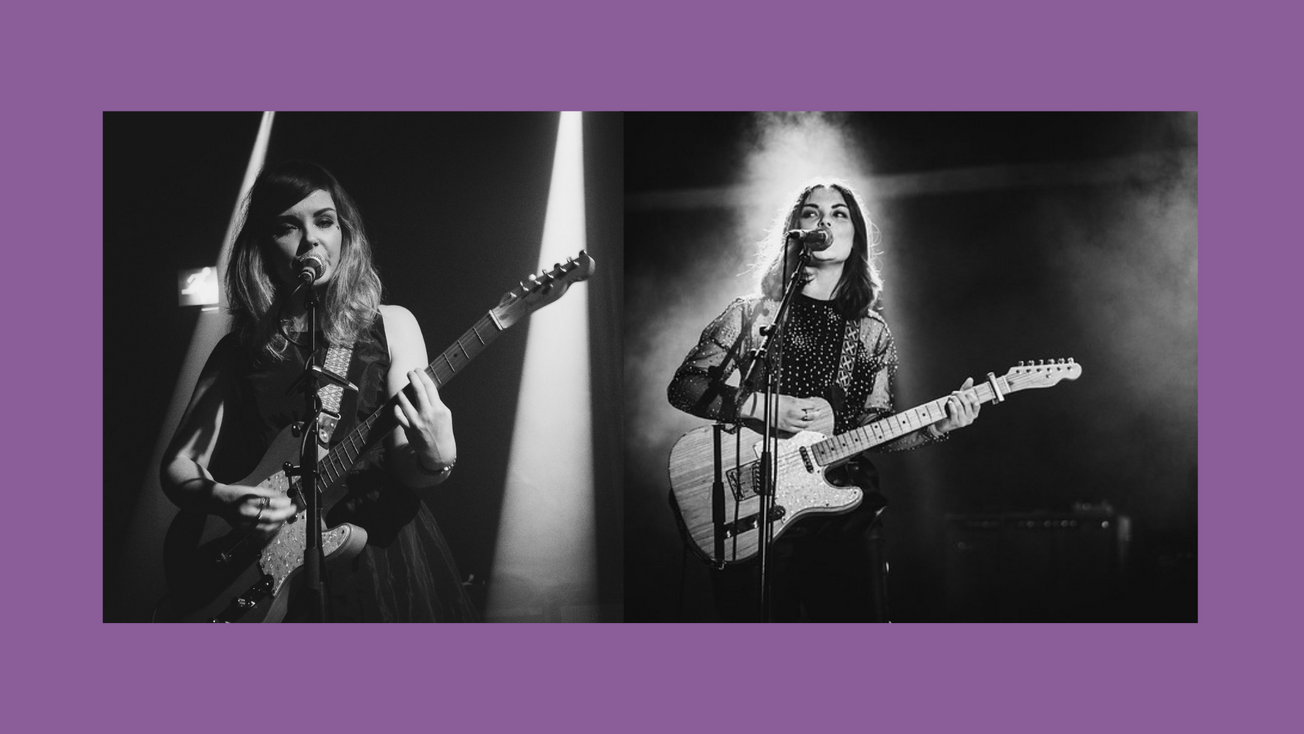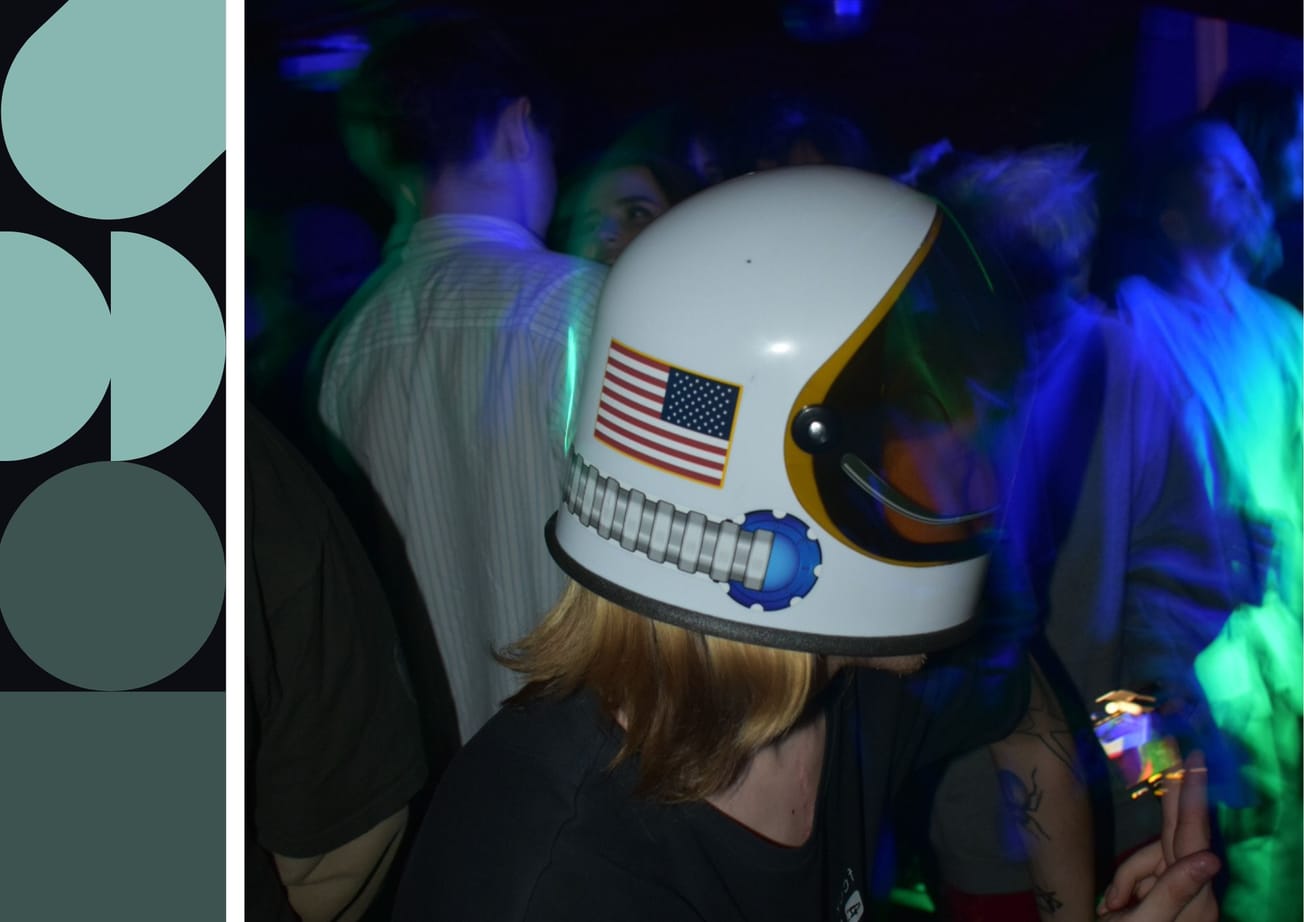By Will Snelling, Deputy Digital Music Editor
Deputy Digital Music Editor Will Snelling talks with rock-duo Honeyblood.
Honeyblood have been an understated but potent presence in the British indie scene since 2013. Their appeal is all in the name; the unusual combination of sweet, indelible melodies with a subtle sense of threat lurking under the surface. The wistful timelessness of ‘Bud’ and the washed-out grunge of ‘Choker’ showed early on that they were willing to move in multiple directions at once. The rehearsal-room immediacy of their self-titled album was followed by the razor-sharp Babes Never Die, and with their new album, the formula’s been altered again. After a succession of line-up changes and a brief hiatus, Stina Tweedale is back at the helm with a new album and tour, and I was lucky enough to talk to her about it.
I read that you’ve got a full live band on this tour - can you tell me a little more about that?
We do - I’m gonna keep it kinda quiet, but it’s not a secret; there will be more people on stage, which I’m really excited about because it’s gonna be something new for me. I’ve matured a lot in the last couple years. I’ve never wanted to stagnate as an artist, and I feel like this has given me a bit of a new lease of life. Some people may like it, some won’t, but it’s just about progression for me.
#tbt to the first recording session for Babes Never Die. I still have ladders in all my tights. ❤️🎧 pic.twitter.com/Qn6rv1f8q3
— honeyblood (@yumhoneyblood) July 11, 2019
I’ve been listening to the new singles and there’s definitely a lot more going on, instrumentally and production-wise. Did you feel like you wanted to be a bit more adventurous with this record, or just less restricted to guitar and drums?
One hundred per cent. I worked with John Congleton, and the reason I wanted to work with him was because he works really fast, which is really important for me because I hate taking too long on these things and I think the faster you can work, the better. He’s good at working normal hours too—I’m quite used to working ten or twelve hour days but he’ll be like, no, I’m going home for my dinner, see you later! It was recorded in nine days; it’s good for me not to stew on things. He’s worked with so many artists I really admire, and brought out so much in them. Mostly I just wanted to make guitars not sound like guitars, and he’s good at that! So he was really important to the making of this record, and I think it really shows.
The last album seemed to be very much centred around youthful abandon and girlhood; would you say that there’s a theme running through In Plain Sight?
Totally. I wrote a lot of songs for this record, but I didn’t necessarily just choose ‘the best’; I wanted them to coherently run into each other and have a theme throughout. A lot of the time I was sitting writing these songs not having a great certainty about what was going to happen to Honeyblood. I moved labels, and obviously decided to take it on this solo venture, so it was a big transition period for me, and this album was me kind of trying to figure out what I was doing, in a very open way. That [theme] seemed very obvious by the end. It was so simple, and that’s why it’s called In Plain Sight. I do really think that it's a kind of story of that year of my life and what I went through.
Were there particular artists you were listening to when you were writing, or do you try to seal yourself off from outside influences when you record?
I listen to new stuff everyday, so I don’t think I can pinpoint anything that i was obsessed with. I did get a piano, and I wrote two songs on the record on that. I don’t play piano very well, but I really wanted to do things a bit differently. There’s a lot of synths on the record, because i wanted to open myself up to that and achieve a different sound; I didn’t want it to be a guitar-driven rock vibe all the way through. That’s the kind of music I love, but i wanted to branch out. The piano was very inspiring to me. I’m still terrible, couldn’t do a recital or anything.
Which contemporary artists are you into at the moment?
I’ve been obsessed with Jenny Lewis’s new record; I think it’s some of the best work she’s done in ages. And I’ve got a friend in Self Esteem and I’ve been to see them two times this year. I just like the idea of really sticking to your vision, and I think both those artists do that.
You’re playing in Scotland today, but later this month you’re playing in Brooklyn and other venues in the US; what’s the challenge like of playing to such different artists?
The American audiences are really different; they’re a bit chatty. I think Honeyblood has always gone down pretty well in America; I think they think I’m American sometimes [laughs]. A lot of my influences are, so I guess that makes sense! I’ve done five tours in America so it feels like second nature now. Having recorded this record there, it feels very linked to America, whereas the last one was recorded in London and felt linked to there. They’re the same songs but each new place does feel like a new way of expressing them. Also, audiences like different things, which I always find quite bizarre; a song that works here might not work somewhere else.
Are there any dates on the huge tour you’ve got coming up that you’re particularly looking forward to?
Well, I’m such a big supporter of independent venues. It’s so important to have them, because if you don’t have them, where are your up and coming bands going to play? Everyone goes on about the UK being such a rich, musically diverse place, but if you didn’t have these independent venues, you wouldn’t have that, and its something that’s shaped both my career and my life, because I was always obsessed with going to gigs.
Was there a particular moment for you growing up, maybe watching someone perform, when you decided ‘yeah, this is what I want to do?’
Yeah, there were a lot of unsigned bands playing in Edinburgh, and I was obsessed with them. They usually weren’t ones you would say had ‘made it’. I didn’t have a plan at that stage, I didn’t want to play in a band and get a top 40 album, it was more like ‘I want to play in a band and play gigs’. I feel exceptionally lucky that I get to do this now. But it was mostly my peers [that influenced me], and it’s mostly a community thing.
Did the history of indie bands in Scotland influence you a lot growing up?
Totally… Moving to Glasgow as well when I was 17 [had a big impact]. I went to uni in Glasgow but I just wanted to be around a more vibrant scene.The community up here has continued, and even though the bands have changed, it’s very consistent. A lot of the bigger names still live here, which is kind of unheard of, like Mogwai, Belle and Sebastian, Franz Ferdinand. They’re still actively going to gigs and supporting the scene. There’s less of a hierarchy, I guess.
That’s cool—they haven’t all just run off to LA.
Well I’m actually thinking about moving to LA! [laughs]. So you never know.
I don’t blame you to be honest! But I’m gonna wrap up. Thank you for speaking to me. And good luck on your extra-large tour this summer.
Thanks!







